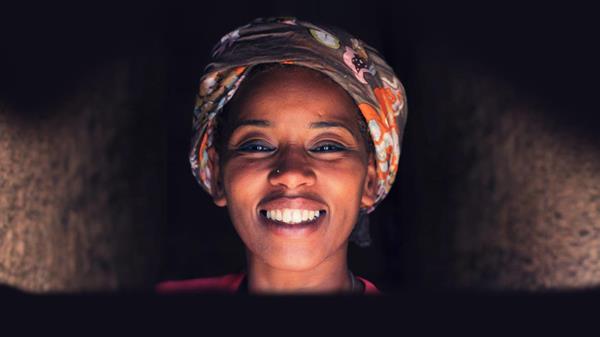Ozy.com
Alice Morrison
In this occasional series, OZY takes to streets and neighborhoods across the globe to ask a simple question: “How was your day?”
Hafida Hdoubane
Morocco
I am Hafida Hdoubane, the daughter of a slave. My father was born into slavery and his father before him, but I am not ashamed. I am proud of who I am. I am proud of what I am.
We don’t really speak about slaves in Morocco. It is taboo because it’s a history of suffering. But it happened; it existed even before the English people took slaves to America. But now, I’m not thinking about this history as taboo or suffering — I’m thinking that my history gave me a lot of power.
My family were nomads from the south of Morocco from a little tribe south of Agadir on the Atlantic. My great-grandfather was a chief of his tribe and a warrior. He was a fierce and clever fighter and won a lot of battles and became a great man. My great-grandmother was originally from Ethiopia and was captured there. She was given as a gift of thanks to my great-grandfather because he had won the war.
Yes, she was a slave, but she was very beautiful, which gave her power. They called her Shwan, which comes from the word Ishwa, which means beautiful in our language. My great-grandfather loved her for her beauty and her grace, and so he married her and set her free.
She became a free woman. She gave birth to a baby boy, and this meant that she became a very important woman, and life must have been good for her at that time. But my great-grandfather was a great man and a leader, so he had enemies. They hunted him and killed him, and my great-grandmother was left alone with her son, who was about 8 years old.
She knew if she stayed she would be killed, so she left her son behind and left the tribe. We don’t know where she went — I hope she returned to Ethiopia and lived happily there, but maybe she was enslaved by another family. I don’t know.
My grandfather was alone, but he survived. He was the son of a great warrior and a beautiful slave, so he had strong blood. He was bought and sold by different families from across Morocco. We were told that he was very brave and proud. In the end, he was bought by a family from near Marrakech in Tahanaout, and they were very kind to him.
His father had been a chief, so he had noble blood, but he had slave blood too, and he was Black, so he couldn’t marry a Berber white woman or an Arab. He had to marry a Black woman. He married a slave called Kabira. Kabira means a big woman in Arabic, and she was called that because she was very tough and very strong.
She became pregnant with my father, but my grandfather was very angry with his life and his position. He could not accept that he was a slave and that even his choice of wife was because of that. He ran away from his family and went to the north. He left my grandmother, who was pregnant with my father, and he married a white woman. He didn’t see his son born.
My father grew up a Black slave. I think you are surprised, because this is in recent times, but there was still a kind of slavery at this time. It was not like before, but there were people who helped rich families. He was one of those, and he was very poor. When he became a man, the French came and took him to be in the military, to be one of their soldiers. He was sent to fight in Cambodia and Nigeria and was injured twice in the head. This gave him a lot of problems in his life.
My mother is a very strong Berber woman. She was only 11 when she met my father — he was 30 — and married him. She had her first baby when she was 12. We are five daughters. My father was sick from the army. He drank a lot and smoked a lot, and he couldn’t keep a job. We didn’t have anything, sometimes not even food. We were helped by a kind French woman who was called Mama Regine. She helped us to survive, and my mother brought us up.
She, my mother, made all of us strong. We didn’t think about our problems or that we were less than other people, or our father was a slave. I studied hard and got my baccalaureate, and then I did my mountain guiding qualifications and became the first female mountain guide in Morocco in 1994. This job here is never done by women. In our culture it breaks many traditions. I am the leader, so I have to tell the men I work with what to do.
Also, the men I am taking into the mountains — they have to do what I tell them or they will not be safe. I had to leave my children at home, even when they were young, to go and do my job, and I would be staying overnight with men away from my family. This is very strange for many Moroccans to understand.
When I look at my childhood, I can see that my family suffered. But now I am successful, and I meet people from all over the world with my company, Tawada Trekking. This makes me proud of this history. It is a great thing to be mixed from Berber, Ethiopian, African and Saharan women. Morocco is a mosaic. We have Black, we have white, we have Arab, we have Berber, we have Jewish.
We have a lot of faces, a lot of traditions, a lot of culture, and that makes this country a really great country. My mum says to me, “You are still a nomad in your mind. And you really look like your great-grandmother from Ethiopia.” This gives me courage — the courage to do my job and to be the first woman in the whole of Morocco to do this.








